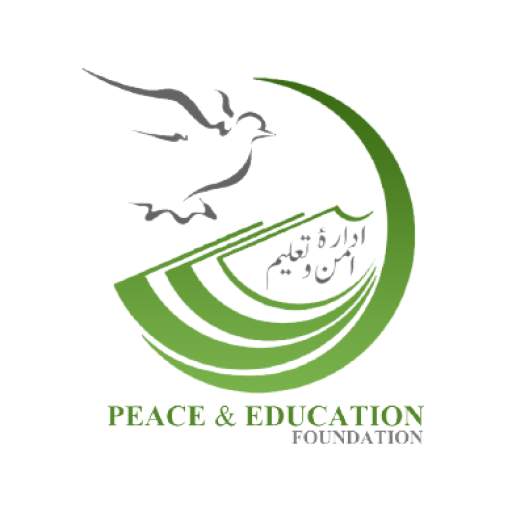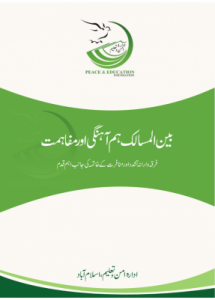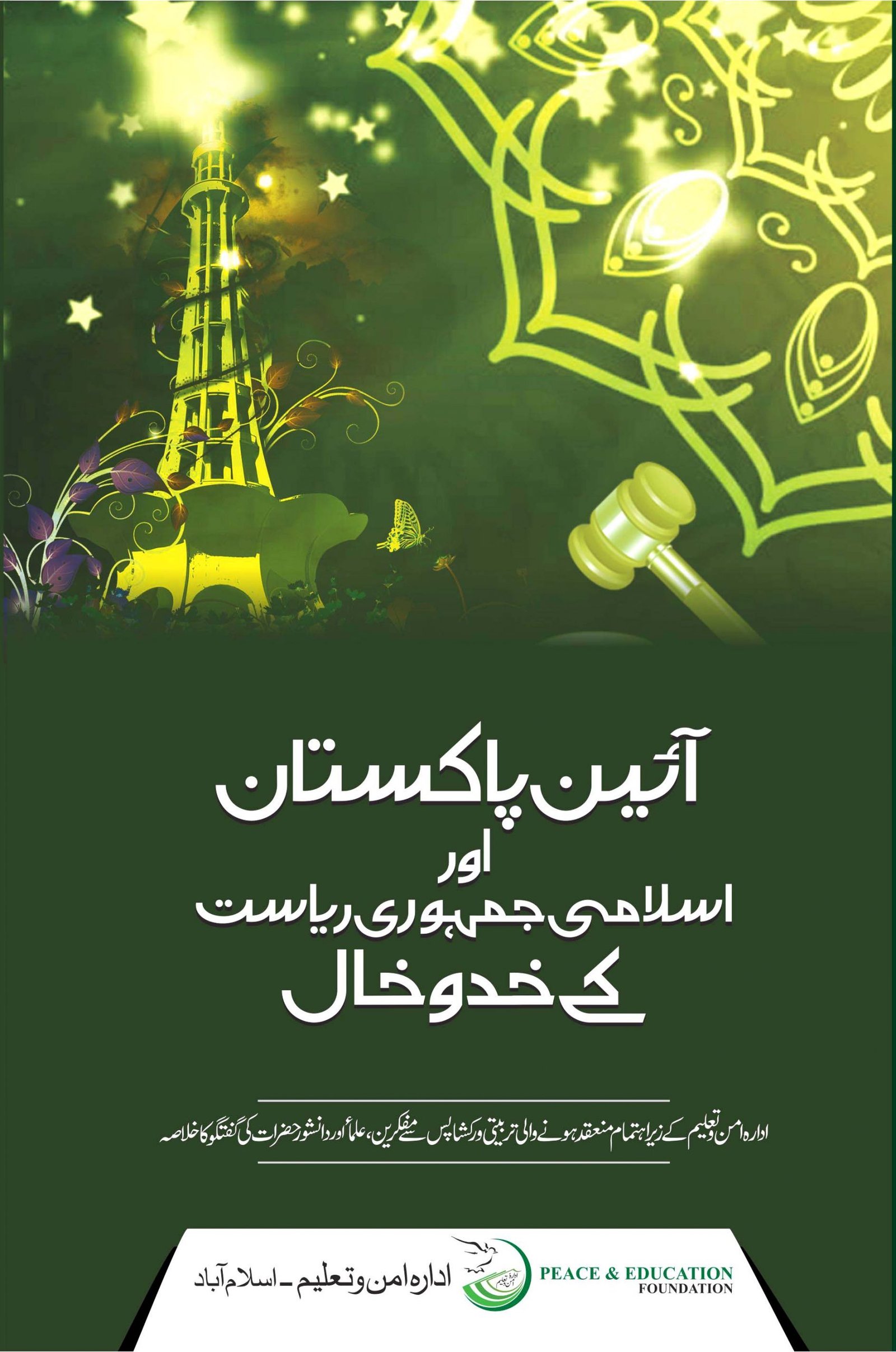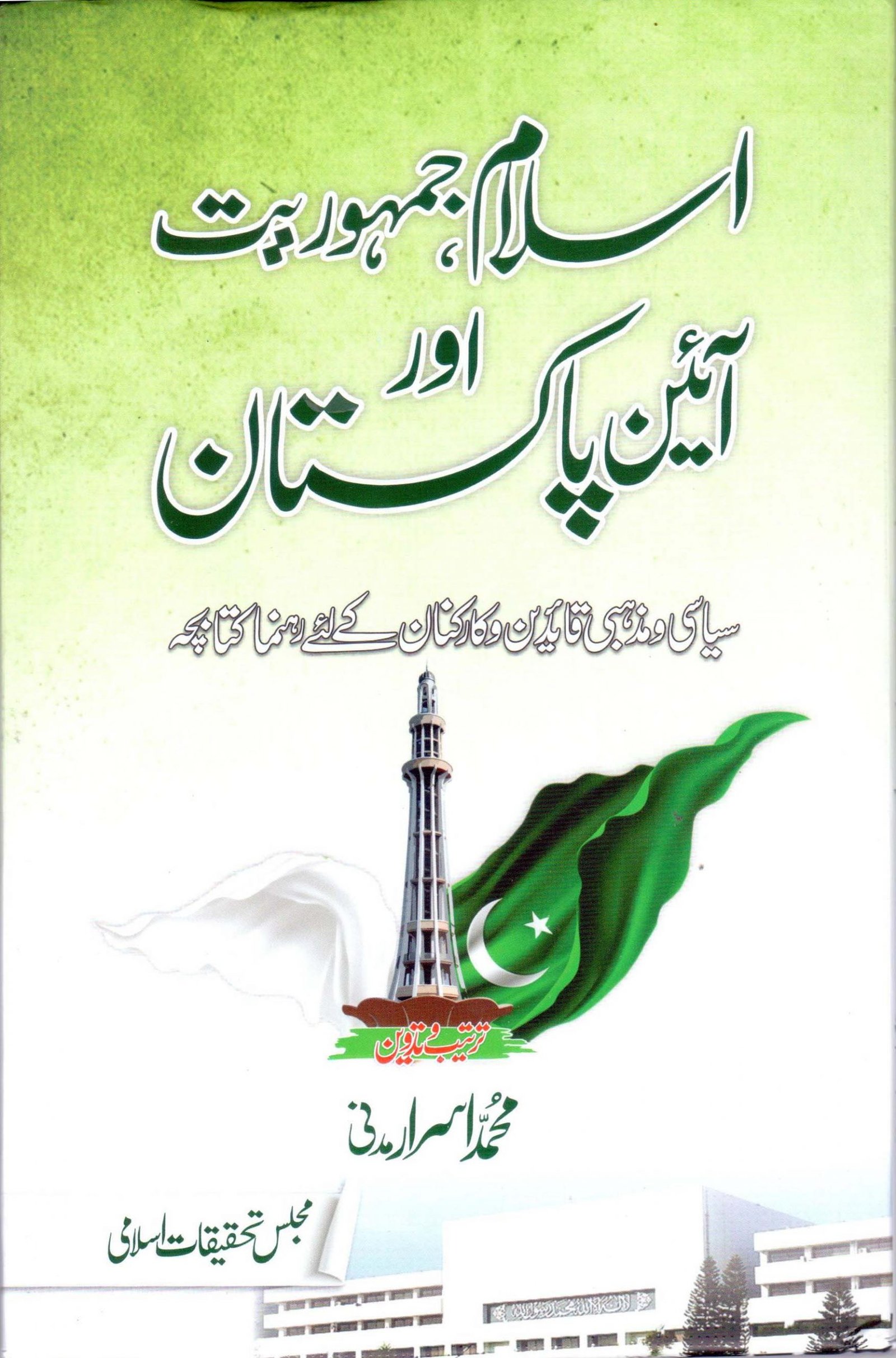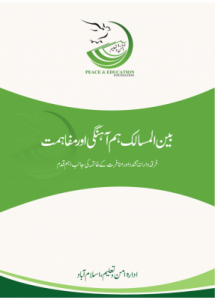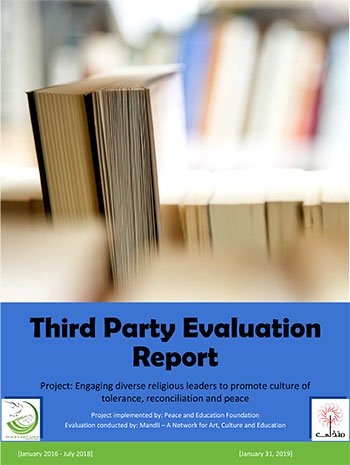Sectarian strife has become a challenge for the security and stability of Pakistan. Since 2006, more than 4000 people have been killed in sectarian nature attacks in Pakistan. Thousands of people, including professors, intellectuals, scholars, lawyers, traders, doctors, engineers, civil and military officers, young students, children and women have been targeted because of their sectarian affiliation. This bloodshed has been fueled by militant sectarian organizations that propagate intolerant and radical ideologies. Though various religious sects live together, side by side, since many years, these extremists were strengthened by the existing sectarian narratives that declare the other sects as infidels, deviant and foreign. While these narratives do not always inspire violent action, they nonetheless justify distrust and suspicion of those with differing faiths. These popular misgivings make it challenging for the government or civil society groups to openly and directly confront whatever radical minority is perpetrating the actual violence.
It was late in December 2014 that the government of Pakistan, responding to the deadliest attack on Army Public School in Peshawar week earlier, announced its counter-terror strategy National Action Plan (NAP). With regard to counter sectarian terrorism, NAP’s clause 18 shows the state commitment against sectarian violence in Pakistan; however the state’s approach in dealing with sectarian violence has been oriented around counter-terrorism so far without addressing the causes and drivers of sectarian militancy. There are some efforts to counter sectarian narratives emerge sporadically from individual religious scholars, however, they do not always possess the tools or capacity to effectively disseminate their message. To address this issue, connections must be developed between credible Pakistani scholars and experts and local leaders who can leverage their social capital to alter religious narratives at a grassroots level in a proven, systematic fashion.
To address this critical need, the PEF started a project “Countering Sectarian Narratives in Pakistan” in 2016 with the collaboration of International Center for Religious and Diplomacy (ICRD) that seeks to develop and disseminate a counter-narrative to sectarian divisiveness and promote peaceful coexistence in Pakistani society. This effort is relying on a coordinated outreach program driven by a network of mid-level religious and civil society leaders who are being trained as advocates and supported by regional “Inter-Sectarian Reconciliation Councils” made up of influential religious leaders who can leverage their extensive social networks and media presence to defuse outbreaks of sectarian tension and embody inter-sect cooperation.
The objectives of the project are to:
- Amplify a narrative of coexistence within and across sectarian divides; and
- Diminish the level of violence and conflict driven by sectarianism.
Title page of Sectarian Narrative Click here to read online
PEF has prepared a narrative for sectarian reconciliation through continuing process of consulting with renowned religious scholars, academia and intellectuals. The narrative report begins with the identification of five major sectarian issues inflicting Pakistan. In the light of these issues, a counter sectarian narrative and its implementation mechanism has been developed. There are many teams of advocates comprising of religious leaders from all sects are working in their communities to disseminate this counter narrative. We fervently hope that, a mark reduction will be possible in sectarian violence in Pakistan, by the implementation of the narrative of sectarian reconciliation.
Achievement and Success
A healthy coordination was observed among all the advocates during the evaluation meeting. The advocates admired this program and said that this program gave us opportunity to meet and sit together with the followers of other sects, so we should continuously organize such programs to coordinate each other and work for sectarian reconciliation. The peace advocates acknowledged that after this initiative they have become a family and they all meet each other regularly and participate in each other’s events.
- PEF has mobilized the pilot advocates’ team in the four district of Punjab and they has conducted more than 60 follow-up activities at community level to disseminate the narrative of sectarian reconciliation in 6 months and they continued their activities by their own. Due to the effort of these advocates, after a long time, sectarian harmony was observed in Punjab during the month of Muharram in 2017.
- The advocates were aware of the threat of sectarian violence in society and they acknowledged the role of the religious scholar in the promotion of sectarian reconciliation. They not only endorsed the narrative but also provided a framework for their planned follow-up activities to promote the narrative of sectarian coexistence in society. Their planned follow-up activities are Friday sermons, teaching in madrassah and schools/colleges, seminar or workshop, Intersect games among students, Intersect madrassah and mosque visits, articles, media forums etc.
- At the moment, about 70 peace advocates and 20 prominent members of Inter-Sectarian Councils are promoting narrative of sectarian reconciliation under this project in Punjab, KPK and Sindh provinces. More than 15,000 copies of narrative have been distributed among religious scholars through these peace advocates.
Our Partners

Project Model
| Stages | Project Deliverables | Objective | Status | Outcome |
|---|---|---|---|---|
| 1 | A five-day initial workshop | Convening major stakeholders and experts to analyze the existing threat of sectarian intolerance and develop a counter-messaging toolkit | The workshop was held in July 2016 | 1. Existing narratives that promote sectarianism were identified and deconstructed 2. A possible content for countering those narratives was developed 3. The concrete strategies for disseminating that content were presented |
| 2 | Review Committee Meeting | To review the initial draft of narrative of sectarian reconciliation, prepared in the light of initial workshop proceeding | Meeting was held in August, 2016 | The scholars have discussed the different features of counter narrative and its dissemination strategies and suggested appropriate changes |
| 3 | Five focus group discussions in KPK, Punjab, Baluchistan, Sindh, and Islamabad | To test how the narrative strategies resonate with target constituencies, including Deobandi and Shia youth in areas with high rates of sectarian violence | 5 FGDs were organized in Sep-Oct, 2016 | The participants of all FGDs have acknowledged the need of countering sectarian narrative and they were committed to promote sectarian reconciliation in society. Overall, more than 80 % of participants agreed upon the content of counter narrative and its key messages. |
| 4 | Second Two-day workshop | To endorse the narrative documents and refine the contents to finalize the counter-narrative and the toolkit | This workshop was held in November, 2016 | The content of counter narrative was analyzed and refined in strategic working groups. At the end of the workshop, participants approved the strategies, and content for the subsequent training. |
| 5 | Identify, train and mobilize a pilot group of advocates in Punjab | To promote and disseminate the narrative of sectarian reconciliation | Completed in February-July 2017 | Subsequent to advocates’ training workshop in Lahore, PEF has mobilized the pilot advocates’ team in the four district of Punjab. The peace advocates conducted more than 50 follow-up activities at community level to disseminate the narrative of sectarian reconciliation. |
| 6 | Evaluation meeting of pilot advocate team Punjab | To discuss which dissemination strategies or elements of the narrative proved to be most or least effective and to evaluate the impact of advocates’ activities | The event was held in July 2017 | The advocate team acknowledged that the campaign to disseminate the narrative of sectarian reconciliation was very successful and they were enthusiastic to continue their efforts after analyzing the impact of their activities. |
| 7 | Expansion and training of Dissemination Teams of Advocates in KPK and Sindh | To mobilize the advocate in KPK and Sindh to disseminate the narrative of sectarian reconciliation | Completed the training in Aug-Dec 2017 and still in progress | 22 Advocates in KPK and 25 in Sindh have started their follow-up activities in their respective communities to disseminate the narrative |
| 8 | Establishing three “Inter-sectarian Reconciliation Councils” in Punjab, Sindh and KPK | To strengthening the narrative of sectarian coexistence in Pakistan | Completed July-Dec 2017 | Six to eight members of Council was established in three provinces separately that is responsible to disseminate the narrative of sectarian reconciliation at higher level and response to a sectarian conflict rapidly. |
| 9 | Final Evaluation Meeting | 1) To share experiences from the field, including lessons learned, 2) identify best practices, and 3) create a plan to sustain existing activities, and, as needed, grow additional activities. | September 2018 | This meeting was part of final project evaluation and planning for future collaboration in other communities |
| 10 | National Conference | 1) To acknowledge the role of religious scholars in promoting sectarian reconciliation. | September 2018 | Prize Distribution Ceremony for Peace Advocates |
